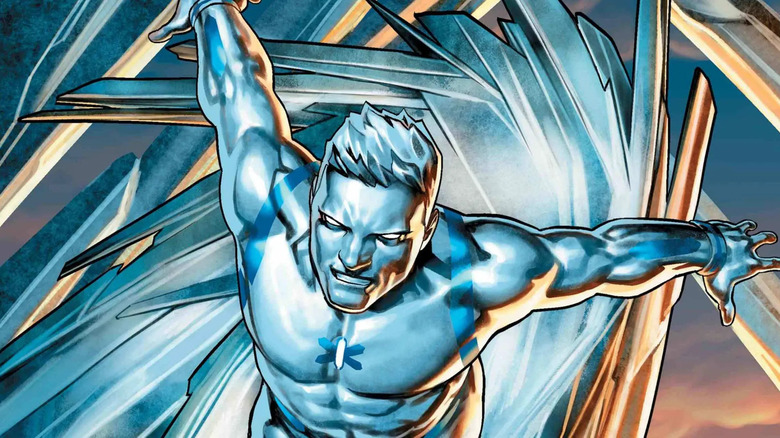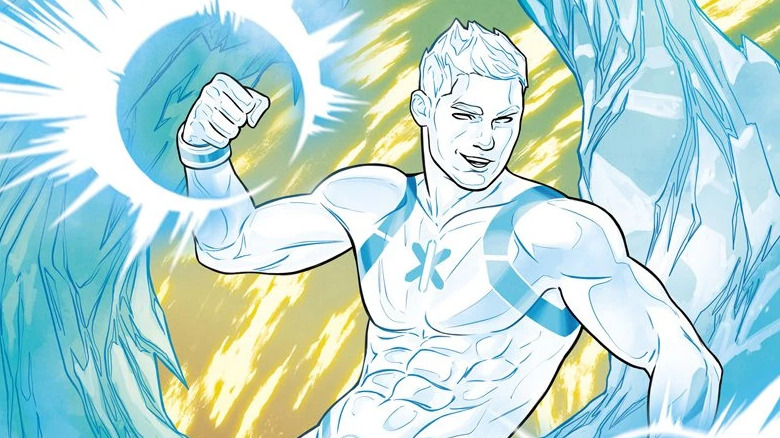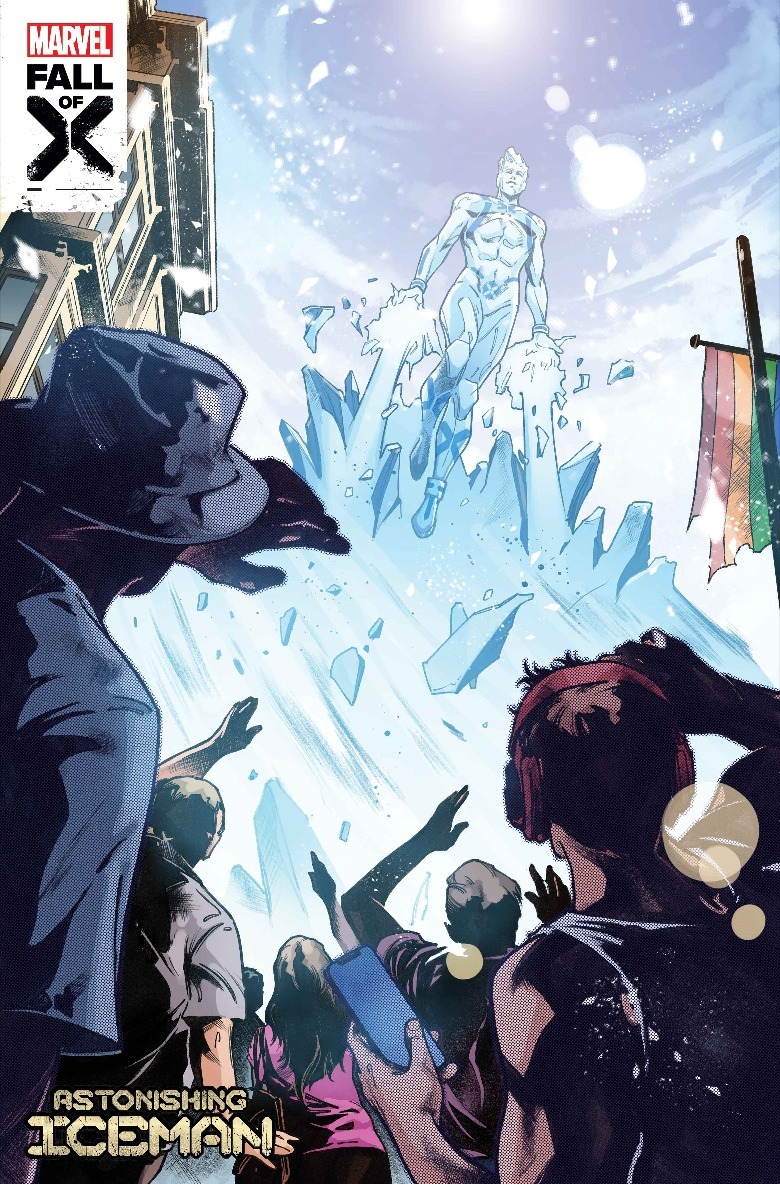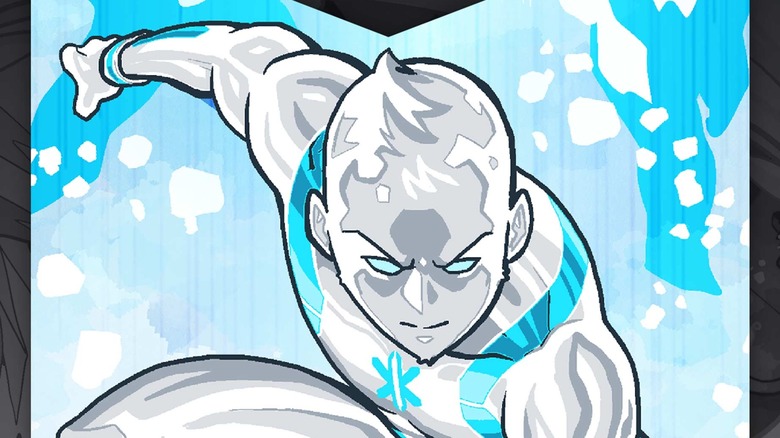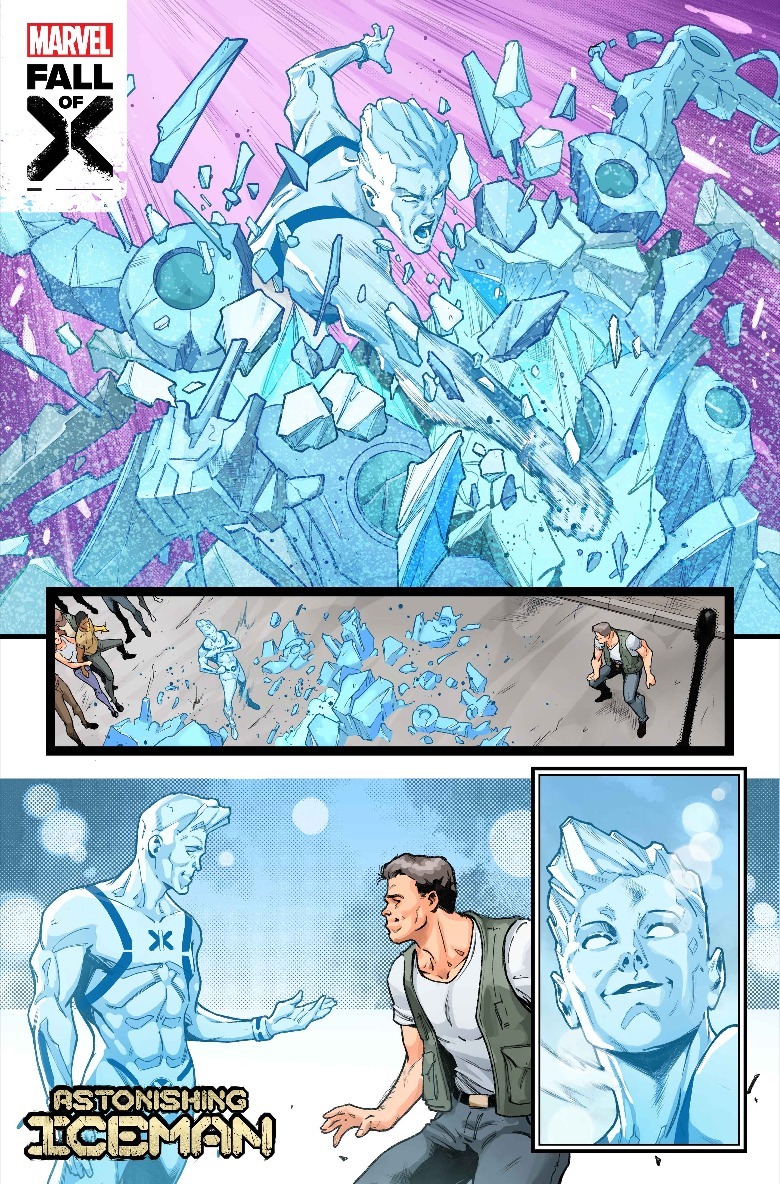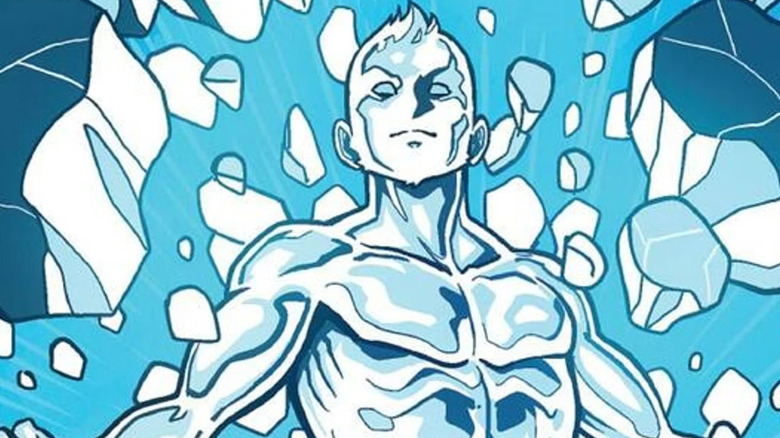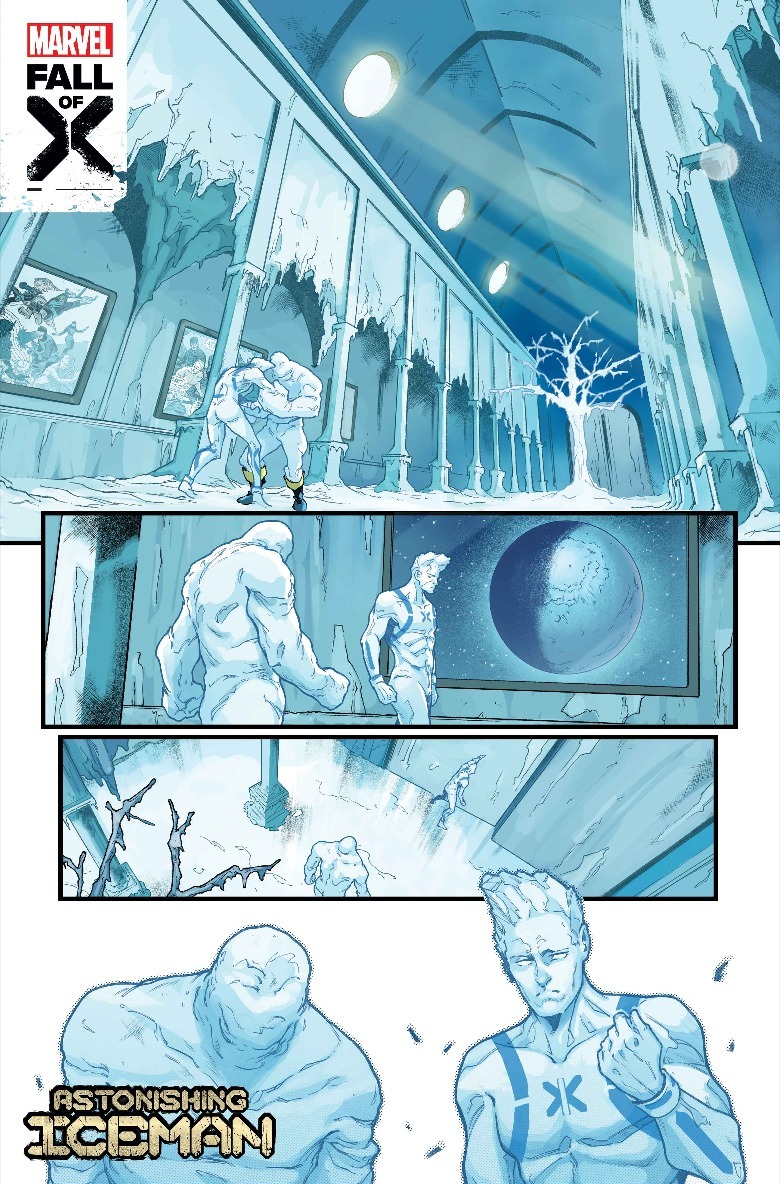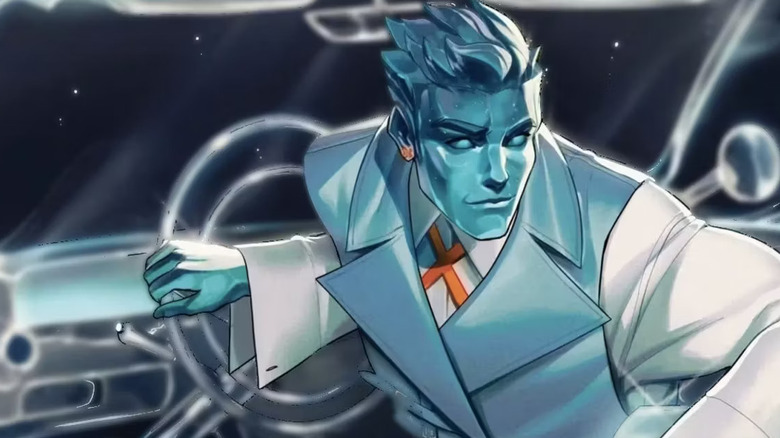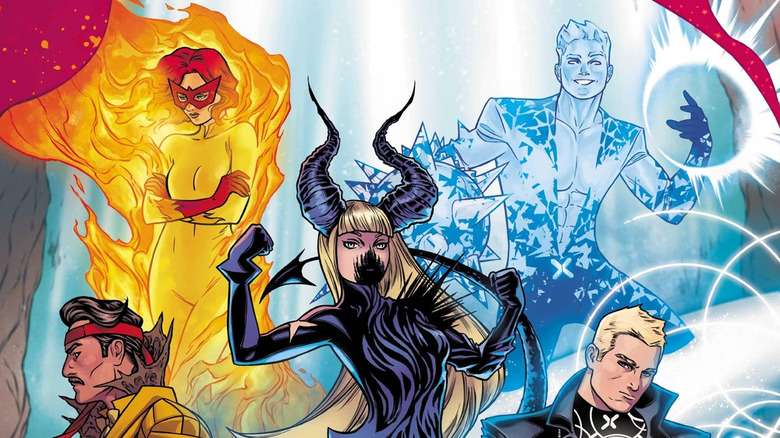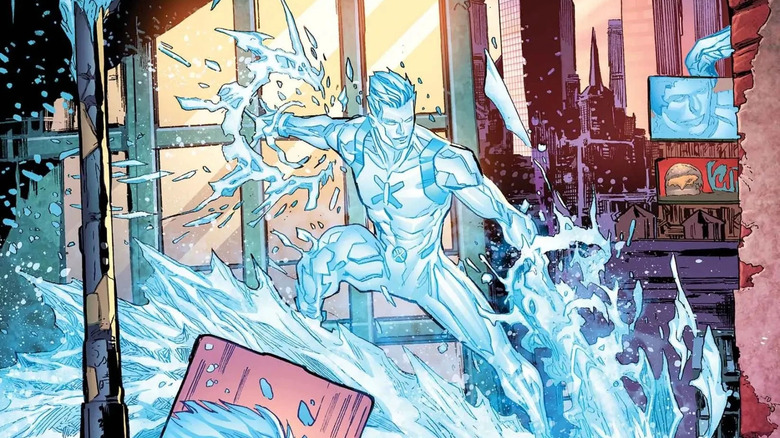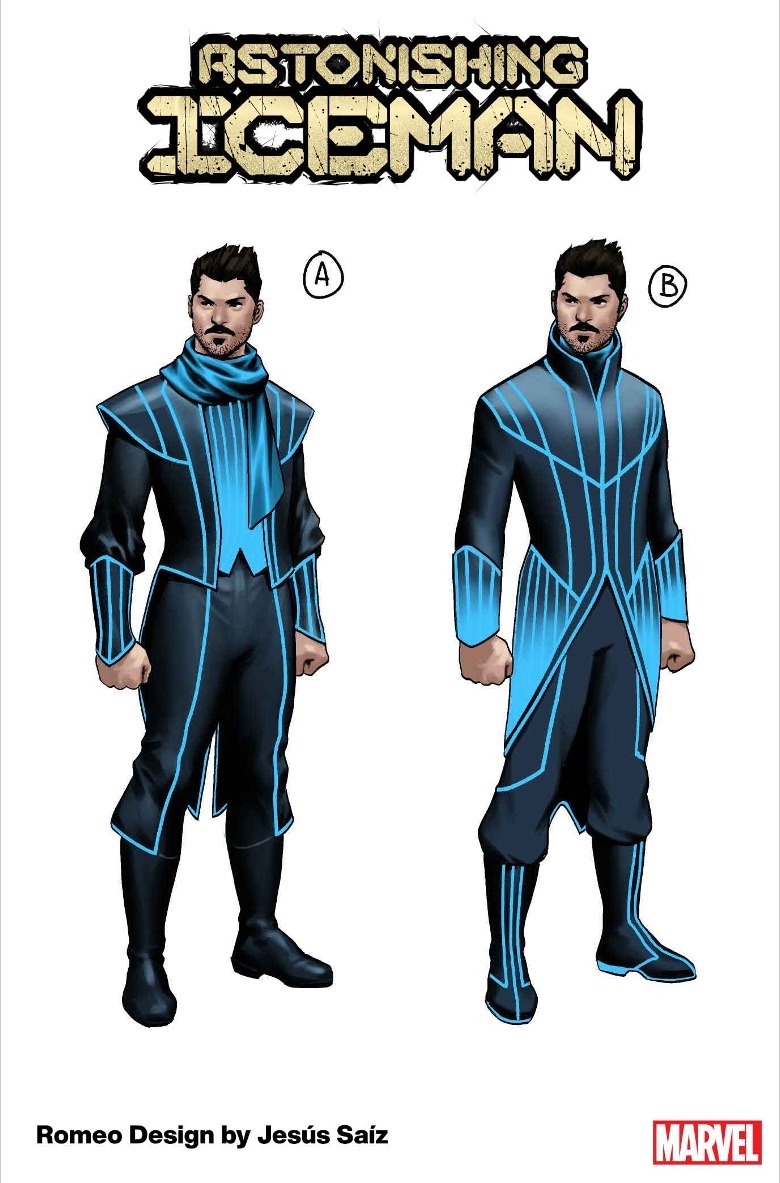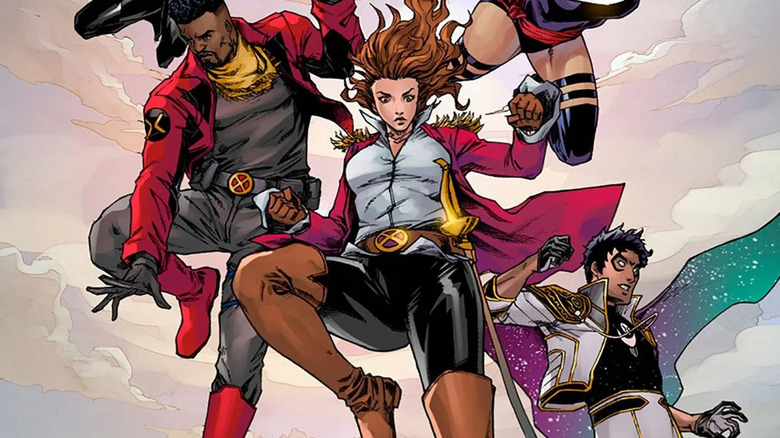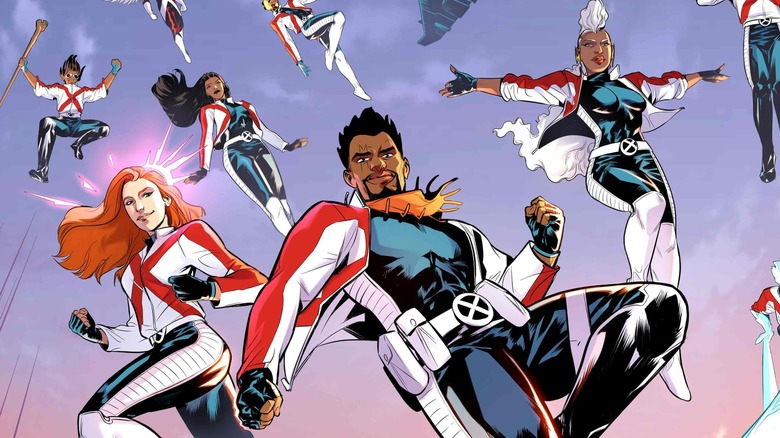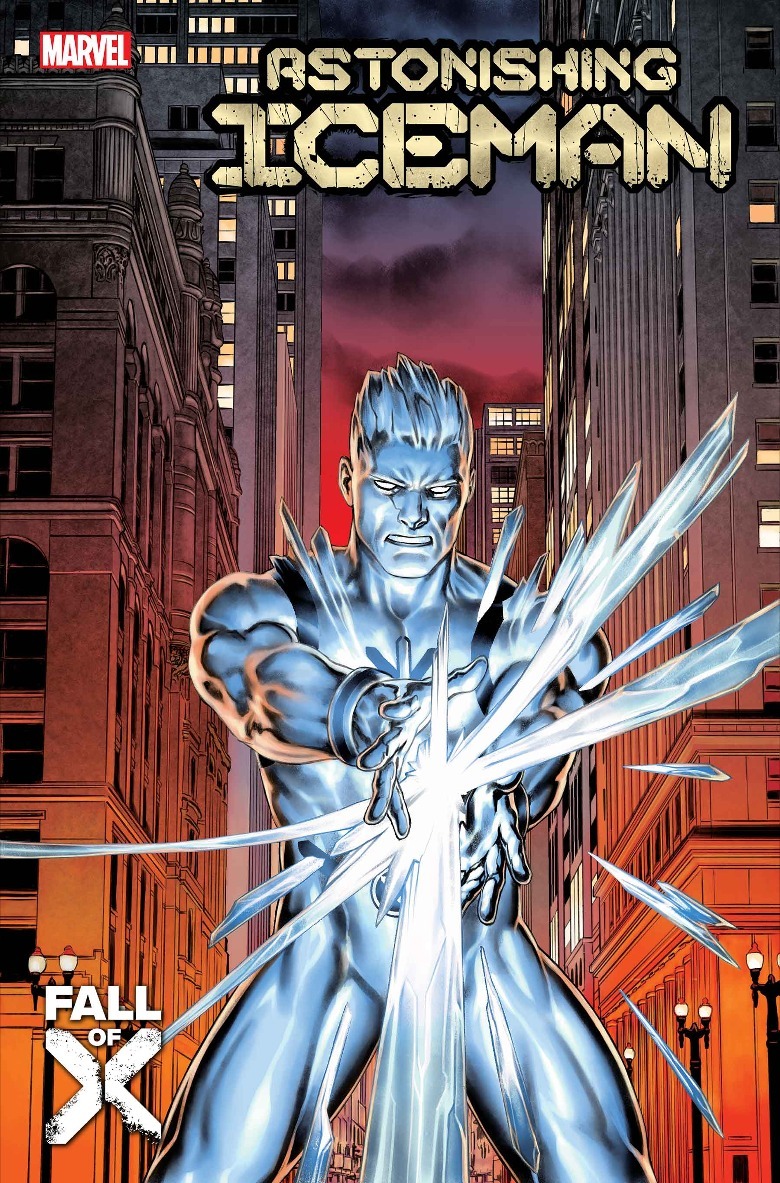Steve Orlando's Iceman Is The Class Clown Who Uplifts Others - Exclusive Interview
The X-Men's Bobby Drake is starring in his own miniseries, with the Omega-level mutant's new adventures being told in the upcoming "Astonishing Iceman" #1. The five-issue comic book by Steve Orlando ("Scarlet Witch") and Vincenzo Carratù ("Mary Jane & Black Cat") will follow Iceman as he leaves Krakoa and heads to Antarctica following the events of the 2023 "Hellfire Gala." While Iceman is one of the original core characters who appeared in Stan Lee and Jack Kirby's "X-Men" #1, he hasn't always been given the same spotlight as the other members of the X-Men's first team. However, the new miniseries is set to focus solely on Iceman's life and where he finds himself amid the chaos currently unfolding among the X-Men.
We spoke with Orlando about tackling the new "Astonishing Iceman" series, the mutant's constantly evolving powers, where the comic takes the hero, and what readers can expect from the series.
Why Steve Orlando is the perfect writer for Iceman
How did this particular project come to be? Obviously, you have experience with the "X-Men" line of books ...
Do I have experience in the X-Men office? I guess I do. When we were talking about who could get a spotlight in "Fall of X," it was — as with many things in comics and the big two and the way publishing works — a confluence of events. We're looking to do some more solo titles, and you've also seen that there's going to be a Jean Grey solo title. The last time there was an Iceman book, I wasn't working at Marvel, and I love that book that Sina [Grace] did. That being said, our perspectives are very different as creators. It seemed like a great opportunity to explore the character, especially because as we dance around what's going to be happening in "Fall of X," it makes Iceman even more in my wheelhouse.
That's not to say there's some big change coming to his core. He's still Iceman, but the situation around him allows him to be even more aggressive and even more swashbuckling and dashing and all the types of things that I tend to write with my romantic superheroes and heartbreaking superheroes. It was a combination of this character had come free for a solo, and at the same time, he's also going to be positioned with the mutant status quo in "Fall of X" to be the type of action book that I write, where he's very much the heartbreaking outlaw doing the right thing against the will of all else.
That was very much in my wheelhouse for people who read "Midnighter" or any of my other solo books. That being said, Iceman is a very different character. While the setup and the environment might be similar, the play-out is very, very different. You're not going to see any exploding heads in Iceman, as you might imagine. He is not obsessed with serial violence, but he is about as driven and dedicated to helping people who need him, which is what appeals to me.
What makes Iceman so special in the Marvel Universe
Iceman feels like one of the more underrated X-men characters, not only due to the fact that he's one of the original characters, but also the fact his power levels as an Omega-level mutant are constantly evolving. What makes Iceman such an interesting character in your eyes?
The power is the power, and he certainly has it — I'll make no argument there. But I don't tend to gravitate to those characters for what they can do so much as who they are. In the case of Iceman, since "X-Men" # 1, he's been the class clown, and there's a lot that goes into that. Part of that is wanting to be a people pleaser, wanting to make people happy, and wanting to turn a bad situation or a stressful situation into a less stressful situation. Part of that is almost like a biological necessity to not follow the rules.
Those are things that I sympathize with, or rather, that I relate to. The nice thing about that is that it's fun when Iceman is making jokes in class, but as the world comes to be even more aggressive toward mutants than ever before and rules start to include what mutants can and can't do — well, Iceman is still Iceman. If you tell him he's not allowed to do something, he's going to want to do it three times as much as before you said that.
In the "Iceman" book, that was the appeal to me, because now it is more dangerous than ever for Iceman to step out into the street as a mutant. That only makes him want to do it more. That only makes him want to spit in the face of that authority more. That's been the appeal to me. It plays out once again in a very different way from a character than ... well, it'll be crazy to say, but it plays out in a very different way than Cassandra Nova. What's similar is that they're not just going to do what they're told, and they're going to sometimes say and do the things we wish we could do if we were a little more uninhibited.
Of course, Iceman is a hero through and through. He's not the woman that killed millions of mutants. But what I find appealing, and the appeal of characters like both of those, is that they say the thing that maybe we as people wouldn't say. They do the thing that we as people maybe wouldn't do. The nice thing about "Fall of X" is that it only shines an even brighter — probably the brightest — spotlight on Iceman's heroism and what makes him unique.
That goes all the way back to his first appearance because when you're a class clown, you're really trying to uplift other people. From the start, he's a person who puts others first. That's the recipe for a hero, especially as tensions increase exponentially going into "Fall of X" when it comes to meeting mutant-kind.
Iceman's powers continue to grow
You've talked about how the series will explore Iceman's powers in new ways. What can you say about that? Does he have an upper power limit?
I don't like to get into that too much because it's kind of the opposite of story, but I'll say this: The minute a character reaches a quote-unquote "peak" or upper power limit ... I don't foresee that ever happening for characters, but not for in-story reasons — for real creative reasons. This concept of characters peaking, that's the end of a story. That's the end of development, and that's not what we're interested in [for] anyone. If readers got it, they probably wouldn't be interested in it either because there'd be nowhere else for the characters to go.
Regarding an upper limit, it's a false narrative in some ways because even if any character "peaked" in their power level, they can still learn increased skill, increased complexity, increased nuance. In the same way that Emma Frost on paper — and I know I'm inflaming the comments section here — is not as powerful with telepathy as Jean Grey, she's still gotten the upper hand on Jean from time to time.
There's always still more to learn, and an upper limit is a simplistic way to look at things. That being said, you will see Bobby do things he's never done before, and you will see him use his powers in a different way than before because what happens to him in the Hellfire Gala forces him to come to terms with what his powers mean for things like his personhood and how he actually exists as an entity. That's thrown right in his face by the events of the Hellfire Gala. You'll see him be not just more powerful, but powerful in different ways and cavalier in different ways because he does know for sure now what matters, what makes Iceman, what's a threat to Iceman, and what he can be flippant about.
Iceman's place in the Marvel Universe
Where does Iceman find himself in this book post-"Hellfire Gala"?
All of mutant-kind is forced to abandon at least the lifestyle and the structure that they've known before. As to how that happens, you got to read the "Hellfire Gala." I'm dancing right up against it. Bobby's not alone, and mutant-kind as a whole has to reinvent itself. Luckily, what is mutation but change? We're all here to do it. So yes, he does find himself disconnected from the life he knew before. The nice thing about Bobby is that he has — whether he knows it or not — many families, and he has many circles.
When it comes to Iceman, you may not see him around all of the characters that you've seen him [with] when he was in "Marauders" or when he was on the X-Men, or he is on the X-Men roster now. But you will see him reestablishing connections that he hasn't had in a little bit, that maybe even he didn't realize were as strong as they are. Much like in real life, sometimes we meet people, we have flings with people, we interact with people, and we think we have our view of it, but we don't know whether or not we've touched someone deeply, whether or not we've really connected with them.
How other people feel about us may not match how we feel about them. While this is a tough time for mutant-kind, it's also an important chance for Bobby to shore up relationships that he maybe hasn't paid a lot of service to in Krakoan times because he's been looking and focusing on other things. Yes, it does include him going to Antarctica. As to why he has to retreat and build a stronghold in the coldest, most remote place on the planet, I will again direct you to Mr. [Gerry] Duggan and his co-creators and the "Hellfire Gala."
How Iceman's recent history shapes his present
How has Iceman's recent time on the X-Men influenced the hero as he goes solo here? How does this build on his most recent stories?
The throughline between the "Infinity" comic and his current run in "X-Men," and even "Marauders" before, is there's a time when Bobby was not unsure about, but reticent and anxious about, his powers. Back in the '90s, it took Emma Frost taking over his body to show him how powerful he could be. The part that's fun about the current era is that he's ... Do I want to connect this to him in canon being closeted then, and now he's out? He's found a confidence and the ability to celebrate himself. That goes in "Marauders," it goes in Luciano [Vecchio]'s "Infinity" run, and it goes in the current "X-Men" run.
Iceman, in this book, when we say that he's going to be pushing bigger, bolder, and more provocative with his abilities — I'd love to take credit for that. I can in this book, but I'm not the one that started it. Gerry [Duggan] started that; Luciano started that when they decided that he was going to be going bigger, bolder, and more confident. You see him f***ing off to Jotunheim to fight frost giants for fun in "Marauders."
This is an Iceman that is at peace with himself, and I can't say that I don't think that isn't connected to his ability to finally live authentically and center his own internal being. Now that everybody knows who Iceman is for real, he is more comfortable being Iceman, being more bold, being more showy with his abilities. We're picking up on what started in those books, and we're going further and we're challenging it, but these are the seeds that started with Luciano, that started with Gerry and Mateo, and it's all about him rather than ...
I said "celebrating himself" earlier, and that's what it is. Whether you're a mutant, which is a fictional thing, or whether you're a queer person, which is a real thing, there's a lot of internalized shame and fear of yourself. For the moment, he has done away with that. This period of confidence, of provocative joy, and, yes, aggression toward people who are threatening mutant-kind — that's part and parcel for him, and that's definitely where the book's going to be picking up.
On Iceman becoming more assured with himself than ever
How does Iceman's new assuredness with himself and his sexuality play a factor in this book? I know there's a potential that we'll see his love interest Romeo in the series.
The pleasure for me with all these characters is when we can write about them as more than simply that checkbox. That's always been my approach to this type of content. If all the pathos and all the threats and drama that a character faces is related to their queerness, or whatever type of intersectional and marginalized community they might be from in addition to being a mutant, it's always felt tokenizing to me — because none of us are only one thing. For Bobby to have settled that ... and he's under threat for sure in Iceman. He's under threat every single time he leaves his stronghold in Antarctica, but not because he's Iceman the queer superhero. He's under threat because he's Iceman, and that means a lot of things, and that's a more holistic look at his character.
That's a long answer for me to say it's exciting to me. When these characters can move beyond filling a certain role and are able to be complex and 3D and rich and imperfect and fallible, that's when they really become characters. Now, Iceman has been a character for 60 years, but when any revelation happens, there tends to be a period where that gets a lot of focus. We're about 10 years on from him coming out — and I pulled that out of my ass, so if I'm wrong, I apologize. But it's nice to have that be part of his greater character now and allow him to push forward. That's how I want to be viewed. I think that's how the majority of folks want to be viewed, though I can't speak for everybody. That's when I get excited about writing these types of characters.
What was it like working with Vincenzo Carratù on this project and seeing covers from Jesus Saiz?
Jesus on the covers has been incredible. I have been a fan of his for a long, long time. I'm sure I read him before, but it was his "Brave and the Bold" Aquaman issue with JMS, who he is now coming up with "Captain America." To have him on covers has been great.
And Vincenzo ... Look, this is not an easy book to draw for all the reasons we just discussed. Iceman can do so many things. He has an endless variety of ways to express his powers, his abilities, his own body. It was never going to be an easy book to draw. But the nice thing is that Vincenzo is leaning in. Every time I put something on the page that I know is going to be a little bit of a challenge, I try to get the scripts done a little early. He doesn't just make it happen; he over-delivers on it, and he exceeds the creativity needed. It's wonderful, wonderful work.
I think that we'll be talking about Vincenzo the same way that we talk about Pepe Larraz in the next three to five years. He has incredible kinetic energy on the page. There's nothing he can't draw, and his pages are incredibly exciting. You'll all see that in a couple of months.
Iceman will focus on the hero before anyone else
Can we expect any carryover from your past "X" titles? Could someone like Somnus potentially show up in this book?
Well, it would be a challenge. It would be a challenge because of the pressure that is put on mutant-kind during "Fall of X." That's not to say I wouldn't love it, but a thing that you will see carrying over is more thematic.
One of the things that we touched on in "Marauders" especially, but in most of the "X" work that I've been part of, is if you erase someone's history, it's easier to control the narrative. It's easier to control them. If you can't read history, you're doomed to repeat it, not just not learn from it. You don't have the chance to learn from it. It can be repeated in that case. The idea that these threats to mutant-kind ... As we all know, if Orchis were to "win" and exterminate mutants from Earth, they wouldn't just be done.
There's always someone else. There's always someone next. We always think, "Well, it's not going to happen to us," but it can. As tensions mount in "Fall of X," that theme is a big part of Iceman. The people you'll see come through the book and work with Bobby, or that Bobby himself is having to rescue, all orbit this notion. As Orchis has their finger on the pulse of controlling mutants, now the question ... They say, "Oh, we love getting cheered. We got to keep getting cheered. We need to find new goats to scape because otherwise, this cheering is going to end."
The thematics of the past work are certainly going to carry over, but because of the intense pressure the mutants are under, it might be hard for some of the folks from my past books to swing through "Iceman." Plus, he's in Antarctica, which by design is extremely remote. He's living at the southern pole of inaccessibility, which is ... There are actually three South Poles, and it is the one that is geographically the most remote part of Antarctica. Bobby cannot be harder to find, is what I'm saying.
Orlando talks his other recent X-Men work
What can you say about tackling the recent "X-Men: Before the Fall – Mutant First Strike"?
"First Strike" — I'm extremely proud of it. Valentina Pinti did an amazing job. Again, talk about a book that is no walk in the park — a massive cast, a real-world setting, power displays, characters that haven't either been shown up in a comic in a long time with these strange powers ... all of which have to be made compelling. She did incredible, incredible work.
Beyond that, if you pick it up and you haven't read all the stuff that we've been doing in the X-Men office, that's totally fine. As long as you know that the mutants have a country, that's all you need for "First Strike." But there's a lot of added context that makes me really proud. It pulls together and enhances and is enriched by the events of things like "X-Men Green," "Giant-Size X-Men," "Thunderbird," [and] "Marauders." What is exciting to me is it all matters. If you're a reader of any of those things, if you've read one of those things but not the others, you'll get a little bit more.
Here's the text synopsis for "Astonishing Iceman" #2:
"HOME IS WHERE THE HEARTBREAK IS!
The bait is set for BOBBY DRAKE as the ELEMENTS OF DOOM target his hometown! Terrorizing the town that raised ICEMAN — but to what end? They say you can't go home again, but if Iceman can't save the day, he might not have a home to return to!"
"Astonishing Iceman" #1 from Marvel Comics arrives in comic book stores and online retailers on August 2, 2023.
This interview has been edited for length and clarity.
